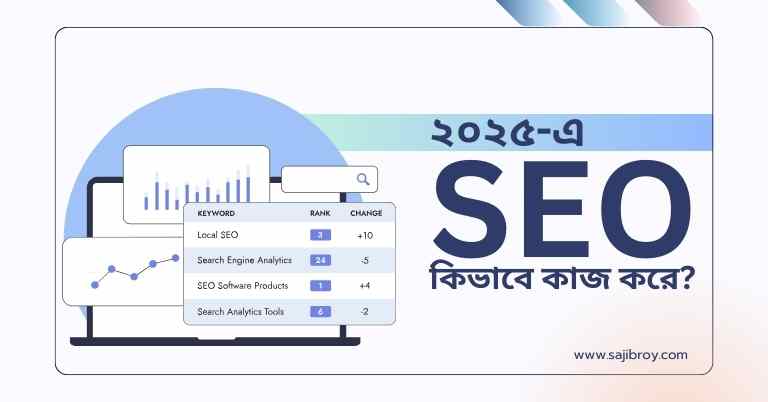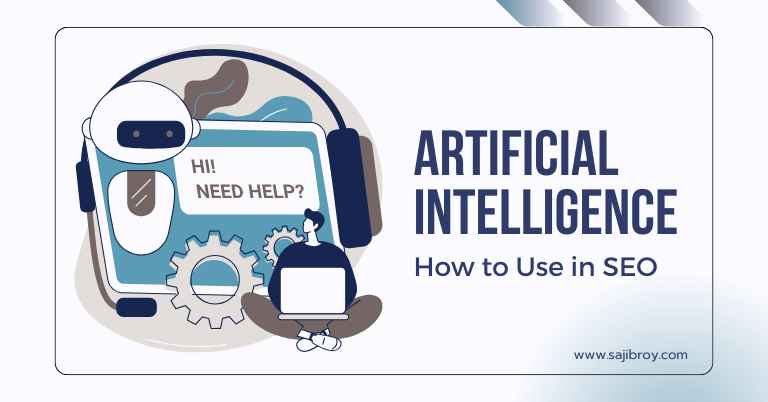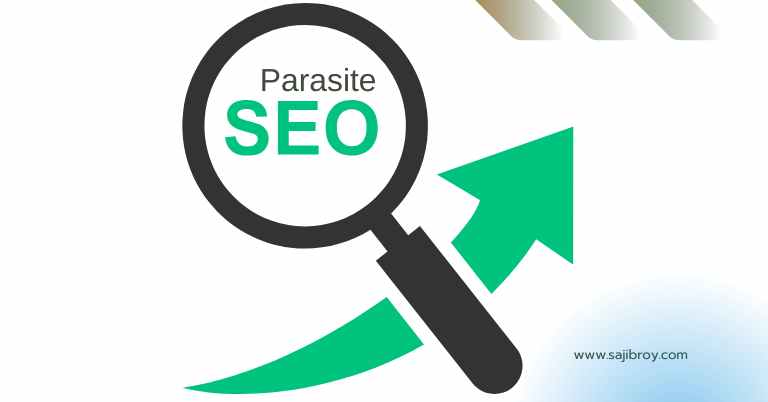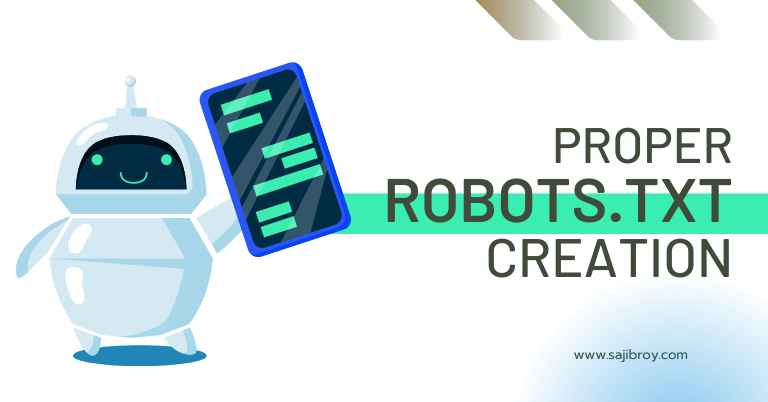AI search will have a significant impact on SEO, changing the way websites are ranked and optimizing content for user intent and relevance. The rise of artificial intelligence (AI) has had a profound effect on various industries, and SEO is no exception.
As AI search technologies continue to advance, they are revolutionizing the way search engines value and rank websites. Traditional SEO techniques that focus solely on keywords and backlinks are becoming less effective, as AI search prioritizes user intent and relevance.
This means that website owners and content creators need to adapt their strategies to align with AI search algorithms, ensuring that their content is optimized for user needs. We will explore how AI search will impact SEO and what steps can be taken to stay ahead in the ever-evolving digital landscape.
Let's See the Topic Overview
Understanding The Impact Of AI on SEO Strategies
Understanding the Impact of AI on SEO Strategies
With the rapid evolution of Artificial Intelligence (AI) technology, search engines are constantly improving their algorithms to deliver more accurate and personalized search results. This shift towards AI-powered search has a significant impact on SEO strategies, influencing how websites are ranked and optimizing content for enhanced visibility.
Evolution Of AI in Search Engines
Search engines have come a long way since their inception. The evolution of AI in search engines has revolutionized the way users find information online. Previous search algorithms relied heavily on keyword matching and backlinks, but AI has enabled search engines to understand user intent, context, and query meaning.
Today, search engines utilize advanced AI technologies, such as natural language processing and machine learning, to comprehend and interpret search queries better. This improved understanding allows search engines to provide more relevant and accurate search results, answering user questions directly and presenting the most helpful content.
Benefits Of AI-powered search Algorithms
The implementation of AI-powered search algorithms brings several benefits to both search engines and users:
- Enhanced search relevancy: AI enables search engines to comprehend user intent better, understanding the nuances behind the query and delivering more accurate search results.
- Personalized search experiences: AI algorithms can learn from user behavior and previous search patterns, providing tailored search results based on user preferences and interests.
- Improved language understanding: Natural Language Processing (NLP) techniques allow search engines to understand complex queries, including context and semantics, resulting in more precise search results.
- Structured data interpretation: AI algorithms can analyze and interpret structured data on websites, enabling search engines to provide rich and informative search snippets, improving the visibility of websites.
- Faster indexing and crawling: AI-powered search algorithms optimize the indexing and crawling process, ensuring new content is discovered quickly and accurately.
How Ai Search Affects The Traditional SEO Approach
The introduction of AI in search has disrupted traditional SEO approaches and requires website owners and SEO experts to adapt their strategies. Some key considerations include:
- Quality content: While keyword optimization remains relevant, AI prioritizes content quality over keyword stuffing. Valuable, engaging, and well-structured content is key to capturing the attention of both users and search engines.
- User experience: AI algorithms assess various factors, such as page loading speed, mobile-friendliness, and user engagement metrics, to determine search rankings. Optimizing user experience is crucial to improving search visibility.
- Voice search optimization: As AI-powered voice assistants gain popularity, optimizing content for voice search becomes imperative. This involves focusing on conversational language, long-tail keywords, and providing concise and direct answers to common user queries.
- Rich snippets and structured data: AI algorithms rely heavily on structured data to present users with rich snippets, improving the visibility of websites in search results. Incorporating structured data markup can provide a competitive edge.
- Continuous adaptation: AI algorithms are constantly evolving. Staying updated with the latest trends and adapting SEO strategies accordingly is essential to maintain and improve search rankings.
The integration of AI in search engines signifies a paradigm shift in SEO strategies. It emphasizes the importance of delivering high-quality content, meeting user expectations, and staying ahead of evolving search algorithms. By understanding the impact of AI on SEO, website owners can optimize their strategies and adapt to the ever-changing digital landscape.
Enhancing User Experience Through AI Search
The advancements in artificial intelligence technology have transformed the way we search for information online. AI search, with its ability to understand user intent, has revolutionized the field of SEO. By enhancing user experience through AI search, websites can provide highly relevant and personalized search results, improving user engagement and ultimately driving greater traffic to their pages.
Personalized Search Results With AI Technology
AI technology has made it possible for search engines to provide personalized search results based on individual user preferences and browsing history. By analyzing user behavior patterns, AI algorithms can better understand user intent and present search results that align with their interests and preferences. This not only enhances user experience but also increases the likelihood of users finding the exact information they are looking for.
Improving User Engagement With Ai-driven Search Features
A well-designed AI-driven search feature can significantly improve user engagement on a website. AI algorithms can analyze user search queries and provide real-time suggestions, auto-complete options, and related searches. This helps users refine their search queries and discover new content, thereby increasing their overall interaction with the website. Additionally, AI-powered chatbots and virtual assistants can offer immediate assistance, further facilitating user engagement and enhancing their experience.
Tailoring content for AI search bots
With the rise of AI search bots, it has become necessary to optimize website content to ensure maximum visibility in search results. AI bots crawl websites using sophisticated algorithms, focusing on the HTML structure to understand the hierarchy of information. It is crucial to adhere to HTML syntax guidelines when structuring headings, such as using the H3 tag for subheadings. By organizing the content in a semantic and structured manner, websites can improve their chances of being indexed and ranked higher by AI search bots.
Leveraging AI For Keyword Research And Optimization
In the rapidly evolving field of SEO, staying ahead of the curve is essential. One of the most exciting developments in recent years is the integration of Artificial Intelligence (AI) into the search process. AI-powered tools are revolutionizing keyword research and optimization, providing marketers with valuable insights and enabling them to drive targeted traffic to their websites. In this article, we will explore how leveraging AI can transform your SEO strategy, focusing specifically on its role in keyword analysis and optimization.
AI-powered tools For In-depth Keyword Analysis
With traditional keyword research, marketers often struggle to identify the most effective keywords for their content. But with the advent of AI-powered tools, that challenge has become a thing of the past. These advanced tools utilize machine learning algorithms to analyze vast amounts of data, allowing marketers to uncover hidden keyword opportunities.
By leveraging AI for keyword analysis, marketers gain access to a wealth of valuable information. These tools can provide insights on keyword search volume, competition level, and even offer suggestions for related keywords that can be incorporated into content. With AI-powered tools, marketers can make data-driven decisions, ensuring their content is optimized for maximum visibility.
Utilizing AI to Identify Search Intent And User Behavior
In the world of SEO, understanding search intent is crucial. AI brings a new level of sophistication to the table, enabling marketers to delve deeper into user behavior and identify the true intent behind search queries. By harnessing the power of AI, marketers can generate content that aligns with user needs, ensuring higher visibility and engagement.
AI-powered tools can analyze user behavior patterns and identify trends, helping marketers determine which keywords and topics are most relevant to their target audience. They can decipher complex search queries, understand user preferences, and deliver content that precisely matches the needs of searchers. By leveraging AI to identify search intent and user behavior, marketers can optimize their content to align with what their audience wants, boosting their chances of ranking higher in search results.
Optimizing Content For AI Search Algorithms
As AI continues to shape the search landscape, it is vital for marketers to optimize their content accordingly. AI-powered search algorithms are becoming increasingly sophisticated, and it is crucial to stay abreast of the latest developments. By aligning your content with AI search algorithms, you can ensure your website is visible to the right audience.
When optimizing content for AI search algorithms, it is important to focus on relevance and quality. AI algorithms prioritize content that provides genuine value to users, so it is essential to deliver meaningful and well-researched information. Additionally, utilizing structured data markup can help AI algorithms understand your content better, enhancing your chances of ranking higher in search results.
In conclusion, AI-powered tools and algorithms are reshaping the SEO landscape. By leveraging AI for keyword research and optimization, marketers can gain valuable insights, identify search intent, and ensure their content aligns with the evolving demands of search algorithms. Embracing AI technology is the way forward for a successful and effective SEO strategy.
Harnessing AI for Voice Search Optimization
In this digital age, the rise of voice search has revolutionized the way we interact with technology. Pioneered by artificial intelligence (AI) technology, voice search has become increasingly popular among users seeking quick and convenient search results. As the world of SEO evolves, it is crucial for businesses to harness the power of AI to optimize their websites for voice search. In this article, we will explore the impact of voice search on SEO and delve into strategies for optimizing for voice search using AI technology.
Rise Of Voice Search And Its Impact On SEO
With the proliferation of smart devices and virtual assistants like Siri, Alexa, and Google Assistant, voice search has experienced exponential growth. More and more users are embracing the convenience of voice-activated searches, enabling them to obtain information hands-free. The impact of voice search on SEO cannot be underestimated, as it requires a shift in optimization strategies to adapt to the changing search behavior of users. AI plays a crucial role in understanding and interpreting voice search queries to provide relevant and accurate results.
Strategies For Optimizing For Voice Search With AI Technology
When it comes to optimizing for voice search, leveraging AI technology is essential. By integrating AI-powered tools and techniques, businesses can enhance their SEO efforts and stay ahead of the competition. Here are some effective strategies for optimizing for voice search using AI:
- Understand Natural Language Processing: Voice search queries are often phrased in a conversational manner. By employing natural language processing (NLP) techniques, AI can effectively analyze and understand the context, intent, and sentiment behind these queries. This allows businesses to tailor their content to match the language patterns used in voice search queries.
- Create Conversational Content: With the rise of voice search, it is crucial to create content that is conversational in nature. AI technology can help identify the frequently used conversational phrases and colloquialisms related to your industry. By incorporating these phrases into your content, you increase the likelihood of appearing in voice search results.
- Optimize for Featured Snippets: Featured snippets, also known as position zero, are concise answers displayed at the top of search engine result pages. AI-powered tools can analyze the content and structure of featured snippets to identify patterns and optimize your content accordingly. By aligning your content with featured snippets, you enhance your chances of being chosen as the voice search result.
- Improve Website Speed: AI algorithms consider page load times when determining search rankings. Optimizing your website for speed not only enhances user experience but also improves your chances of being selected as the voice search result. AI can analyze the performance of your website and provide actionable insights to help you optimize it for faster loading speeds.
- Use Schema Markup: Schema markup is a code added to your website that helps search engines understand the context of your content. AI-powered tools can analyze your website’s schema markup and provide recommendations to optimize it for voice search. By implementing schema markup correctly, you increase the chances of your content being utilized by voice assistants.
- Continuously Monitor and Optimize: The field of SEO is constantly evolving, and voice search is no exception. AI can help businesses monitor trends and changes in voice search behavior, allowing them to adapt their optimization strategies accordingly. Regularly monitoring and optimizing your content ensures that you stay at the forefront of voice search trends.
Harnessing AI for voice search optimization is essential for businesses to thrive in the ever-changing SEO landscape. By keeping up with the rise of voice search and making use of AI technology, businesses can effectively optimize their websites and stay ahead of the competition.
Adapting SEO Strategies For AI Search
In this rapidly evolving digital landscape, AI search algorithms have become a game-changer for search engine optimization (SEO) professionals. To remain competitive and ensure your website ranks high on AI search results, it is crucial to adapt your SEO strategies accordingly. Staying up-to-date with AI search algorithm updates, implementing strategies to stay ahead, and integrating AI-driven SEO tools and technologies will be instrumental in maximizing your online visibility.
Let’s delve deeper into each aspect:
Staying Up-to-date With AI Search Algorithm Updates
One of the key aspects of adapting your SEO strategies for AI search is keeping up with the frequent updates in AI search algorithms. AI-powered search engines, such as Google’s RankBrain, continuously evolve to provide more accurate and relevant search results. To ensure your website maintains its visibility, it is essential to stay updated with these algorithm changes and modify your SEO practices accordingly.
Some effective ways to stay informed about algorithm updates are:
- Follow reliable industry blogs and forums
- Monitor search engine announcements and official documentation
- Engage with SEO communities and professionals
- Regularly analyze your website’s performance and rankings
Strategies For Staying Ahead In The AI Search Landscape
To stay ahead in the highly competitive AI search landscape, a proactive approach to SEO is essential. Here are some proven strategies you can implement:
- Optimize for voice search: With the rise of virtual assistants like Alexa and Siri, optimizing your content for voice search queries will become increasingly important. Focus on conversational, long-tail keywords and provide concise, direct answers to user queries.
- Create high-quality, engaging content: AI search algorithms prioritize websites that offer valuable, informative content to users. Ensure your content is well-researched, relevant, and engaging, catering to the needs of your target audience.
- Enhance user experience (UX): User experience plays a crucial role in AI search rankings. Optimize your website for mobile devices, improve page loading speed, and make navigation intuitive and user-friendly.
- Build authoritative backlinks: In the AI search landscape, high-quality backlinks continue to be a vital ranking factor. Focus on building relationships with reputable websites and earning natural, relevant backlinks from authoritative sources.
Integrating AI-driven SEO Tools And Technologies
To navigate the AI search landscape successfully, it is essential to leverage AI-driven SEO tools and technologies. These tools can provide valuable insights and automate various SEO tasks, saving you time and effort. Here are some AI-driven tools worth considering:
| Tool | Description |
|---|---|
| Chatbots | Utilize chatbots to enhance user engagement and improve customer support. These AI-powered bots can provide instant responses to user queries, ensuring a seamless browsing experience. |
| Keyword research tools | AI-powered keyword research tools can analyze vast amounts of data to provide valuable insights into keyword trends, search volume, and competition. Use these tools to identify lucrative keyword opportunities for your content optimization efforts. |
| Natural language processing (NLP) tools | NLP tools can help you effectively optimize your content for voice search. By analyzing natural language patterns and user intent, these tools can assist in creating content that aligns with the preferences of AI search algorithms. |
| Rank tracking tools | AI-powered rank tracking tools provide real-time insights into your website’s search rankings and performance. Utilize these tools to monitor your SEO efforts, track keyword positions, and identify areas for improvement. |
By integrating these AI-driven SEO tools and technologies into your strategy, you can gain a competitive advantage and optimize your website for AI search algorithms more effectively.
Conclusion
To adapt to the evolving landscape of SEO, it is essential to understand the impact of AI-powered search technologies. With a focus on delivering more accurate and personalized search results, AI search is revolutionizing how SEO strategies are designed and implemented.
As we move forward, it is crucial to prioritize optimizing content for AI algorithms to enhance organic search rankings and drive targeted traffic. By staying abreast of AI advancements, SEO professionals can harness the power of AI search to stay ahead of the competition and achieve long-term success in the digital landscape.




![6-Month Local SEO Plan [Download Your Complete Proposal Template]](https://www.sajibroy.com/wp-content/uploads/2025/01/6-Month-Local-SEO-Plan-Download-Your-Complete-Proposal-Template.jpg)







